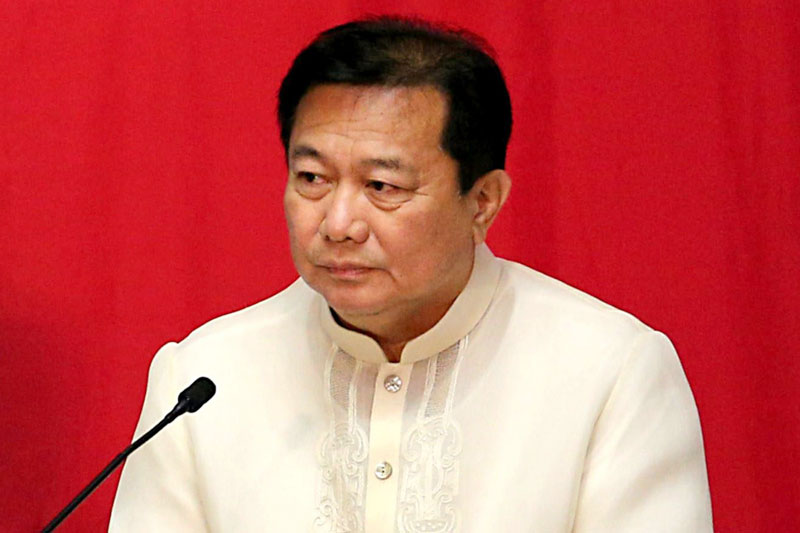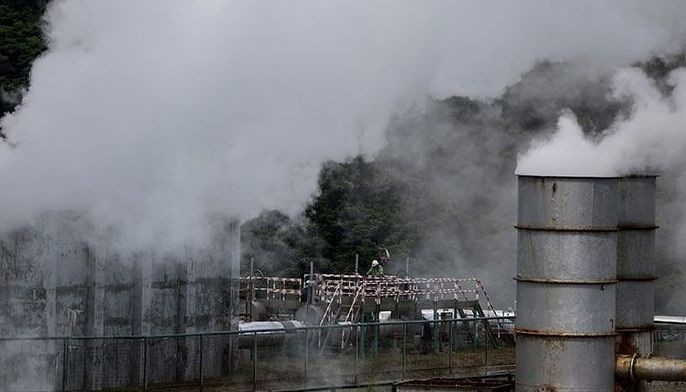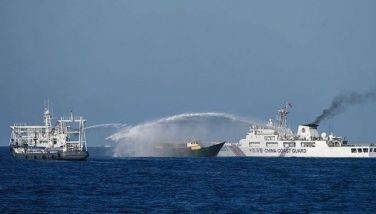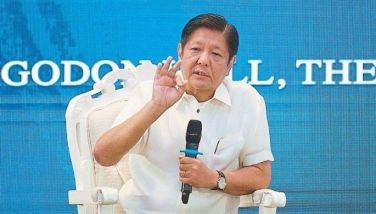UN rights chief hit over report on Philippines
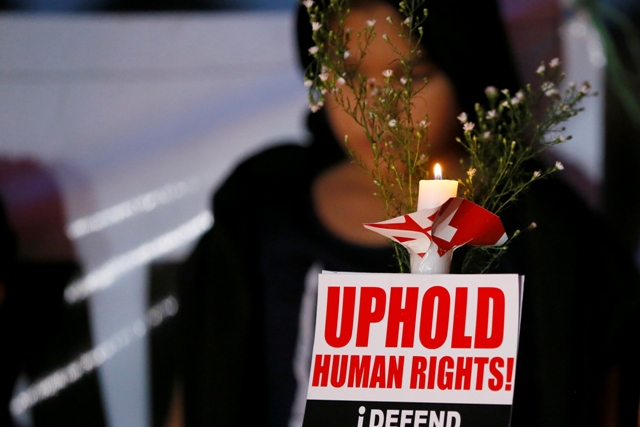
The Philippines directed heavy criticism at the United Nations human rights chief for severely mischaracterizing the human rights situation in the country in his report to the Human Rights Council. AP/Bullit Marquez, File
MANILA, Philippines — The Philippines directed heavy criticism at the United Nations human rights chief for severely mischaracterizing the human rights situation in the country in his report to the Human Rights Council.
Foreign Affairs Secretary Alan Peter Cayetano and Maria Teresa Almojuela, the deputy permanent representative of the Philippine Permanent Mission to the United Nations and other international organizations, separately called out UN High Commissioner for Human Rights Zeid Ra’ad Al Hussein for criticizing the Philippine government’s human rights record, saying his report on the conduct of anti-drug operations was deliberate misinformation.
In Geneva, Almojuela responded to the commissioner’s report, stating that “the practice of making highly biased and sweeping generalizations, without due consideration of the facts on the ground, has no place in the Human Rights Council.”
“Like any country, the Philippines cannot and does not assert that it manages the challenges to human rights in a perfect manner, but the Philippine government, more than any party here, seeks justice and dignity for all Filipino people,” Almojuela said.
Cayetano said the “Philippines has provided the Human Rights Council with all the facts regarding the campaign against illegal drugs in our report to the Third Cycle of the Universal Periodic Review (UPR) in May 2017” and that the commissioner’s report “would have been balanced and accurate had he considered the information that we provided, instead of just relying on uncorroborated information.”
The report, he added, emphasized Duterte’s directive to fight the drug problem by all means that the law allows.
“The anti-illegal drug campaign should follow approved protocols to ensure the protection of human rights, and that any erring law enforcement agent would be investigated and prosecuted to the full extent of the law,” said Cayetano, who led the Philippine delegation to the Third Cycle of the UPR in Geneva and presented the country report.
Zeid said on Monday that he is gravely concerned by Duterte’s lack of respect for the due process rights of all Filipinos with the Philippines among the countries with “darker and more dangerous” human rights situation.
The UN is also deeply concerned about the impact of the government’s war on drugs on Filipinos.
But Almojuela stressed that the Philippines “is a democratic country that strongly adheres to the rule of law, with well-established and institutionalized human rights, policies and programs.”
“The Philippine government investigates and prosecutes all credible allegations of human rights violations, including those perpetrated allegedly by state security forces,” she said in her statement at the 36th Human Rights Council General Debate.
“The UPR has shown our openness to constructive dialogue to continue to enhance and strengthen the protection and promotion of human rights in the country,” she added.
The Universal Periodic Review is a state-led process, which seeks to promote cooperation among UN member-states in further enhancing their respective national human rights policies and practices.
Many UN member states, especially those from ASEAN and developing countries, expressed support for the efforts of the Philippines to address the drug menace. Some member-states also committed to provide support for the Philippine drug treatment and rehabilitation plans.
Meanwhile, UN special rapporteur Agnes Callamard, in an interview with French newspaper Liberation, warned that Duterte’s war on drugs has become a crisis of human rights and public health as the vast majority of drug related killings has not been investigated.
She said the obligation of an independent inquiry on the murders committed by state officials has become stronger.
“The vast majority has not been investigated. On this point alone, Manila contravenes its obligations. The victims are no longer journalists, lawyers, human rights defenders, trade unionists, but people suspected of being linked to drug trafficking, consumers or drug addicts,” Callamard added.
In reaction to the House of Representatives’ decision to slash the Commission on Human Rights (CHR) 2018 budget from P678 million to only P1,000, Callamard said it was “an act of wasting public money, damaging and hurting the Philippine society at a time when it is confronted with allegations of massive human rights violations throughout the country.”
She added that the CHR, although critical of the administration’s war on drugs, is a crucial institution for the Philippines for human rights protection, the rule of law and accountability.
- Latest
- Trending

















